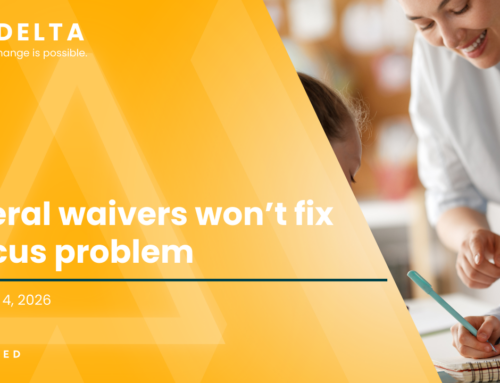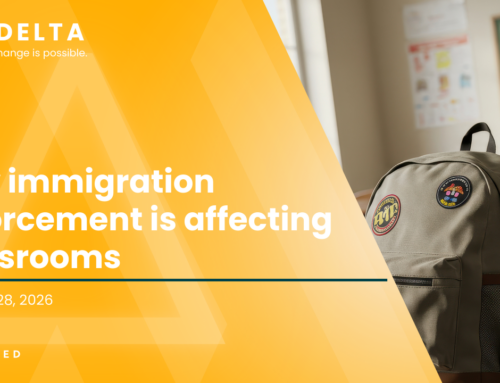The Delta Issue #65
Building Math Confidence, One Adult at a Time
Hi everyone, Kunjan here.
We’re adding an extra Delta this week, and it may look a little different.
We’re featuring a crossover post I wrote for @HMH’s Policy in Motion series about how we build confident math learners, starting with confident adults.
Check out the full piece below.
Lately, the story we tell about math in America has been one of crisis. U.S. math scores peaked more than a decade ago and have declined ever since, with the steepest drops among our lowest-performing students.
There are many reasons for this downward trend, one of which is a confidence problem. Math anxiety has taken root in classrooms, administrative offices, and across our culture. And when the adults responsible for teaching math feel uneasy about it themselves, that uncertainty inevitably reaches students.
I started my career as a sixth-grade math teacher and felt that anxiety in myself and in my students, many of whom had already decided whether they were “math people.” Now, working with states and districts from a policy lens, I see how that same pattern runs through entire systems, limiting both educator confidence and student growth.
We can design systems that build confidence instead of fear.
I recently joined a conversation hosted by @Education Week, with @Julie Grove, @Dr. Katey Arrington and moderated by @Chad Aldeman to talk about how we make math work for every learner. (If you missed it, you can catch the full recording here).
We all agreed: math anxiety isn’t an individual problem; it’s a systemic one. If we want students to see themselves as capable mathematical thinkers, we have to build systems that reflect that same belief.
When I was a new teacher, I was handed two curricula—one focused on procedural fluency, the other on conceptual understanding—and told to make sense of how they fit together. No one at the school level could help me figure out what to teach when, or how to connect the two.
We wonder why students struggle with confidence in math, but the answer is right in front of us.
They’re learning inside systems filled with adults who often feel the same way: teachers who don’t feel ready to teach the math in front of them, principals unsure how to provide support, and leaders who haven’t built the time or structures to grow confidence. Over time, fear becomes avoidance, and avoidance keeps us from improving the very systems that created it.
Improving student learning in math starts with how adults learn. Here’s what that can look like:
1️⃣ Teachers need time and space to do math together. Professional learning should be where educators both deepen their understanding of the math and plan how to teach it, using the same curriculum and materials they use in the classroom. That means tackling the hardest problems in a unit together, talking through where they struggled and where students might, and planning how to anticipate and address those challenges before they happen.
2️⃣ Principals and coaches need to engage with that same math, and make sure there’s ongoing, protected time for teachers to do so together. They need to understand the content well enough to support teachers in building confidence, to observe instruction through the lens of the math itself, and to help teachers examine student work and plan how to address misunderstandings. That also means keeping an eye on students who need additional support and ensuring there’s time in the schedule for aligned help that connects back to core instruction.
3️⃣ System leaders need to make this learning possible. That starts with protecting time for math-focused professional learning and treating it as core instructional work. They also need to ensure educators understand why this focus on strong curriculum and professional learning matters, and then procure high-quality materials and supports that reach every teacher
At @Watershed, we call this the implementation chain, the specific ways in which adults need to shift their practice to ensure kids benefit from good policy. If we want students to feel more confident and capable in math, then adults—from the statehouse to the classroom—-need to change how they learn, plan, and lead.
I know this work is easier said than done. The rubber meets the road when we ask: how do we actually make this happen every day, in real classrooms, with real people?
We’re already seeing encouraging progress in states like Alabama and Mississippi, where leaders are working to build math confidence across their systems. They’ve invested in math coaches and professional learning connected to curriculum, and students are growing right alongside the adults supporting them.
Building systems that create confidence isn’t simple work, but it’s possible, and it starts with believing that adults can learn math differently, too.





